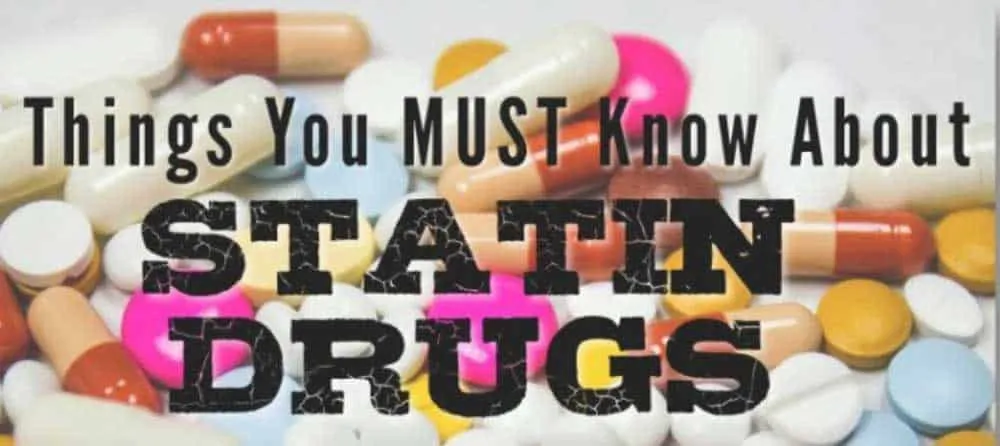
EFFECTS OF STATIN DRUGS
 Elevated blood cholesterol is an important risk factor for cardiovascular disease. Higher LDL cholesterol levels mean that more LDL from the bloodstream makes its way into the arterial wall. There, LDL is oxidized, setting off a chain of events leading to the formation of atherosclerotic plaque.
Elevated blood cholesterol is an important risk factor for cardiovascular disease. Higher LDL cholesterol levels mean that more LDL from the bloodstream makes its way into the arterial wall. There, LDL is oxidized, setting off a chain of events leading to the formation of atherosclerotic plaque.
Statin drugs work by blocking an enzyme involved in the liver’s production of cholesterol.
STUDIES SHOW
In a 2010 study that analyzed the medical records of 2 million statin users. Increases in the risk of liver dysfunction, muscle-related side effects, acute kidney injury and cataracts associated with statin use were reported. Larger doses of statin drugs are associated with greater likelihood of side effects. In addition, additional risk factors such as other drugs, older age, diabetes, and high triglycerides also increase the possibility of adverse effects. As a result, there is debate over whether statins may have detrimental effects on brain function. Approximately 17 percent of patients who take a statin experience an adverse effect. Even if this seems like a low level of risk, statins treat a condition that is preventable and reversible via dietary and lifestyle modification. So why take any chance at all?
It is now well established that there is an increased risk of type 2 diabetes in statin users, one meta-analysis reporting a 9 percent increase in risk. Another reporting a 13 percent increase in risk. Statin use appears to promote diabetes by impairing insulin secretion by the beta cells of the pancreas and also by reducing insulin sensitivity.
COMMON EFFECTS
The most common adverse effects of statins are myopathies (impaired muscle function), which may be due to reduced energy production in the mitochondria of the muscle cells. Statins are toxic to the mitochondria because they promote the depletion of coenzyme Q10 (CoQ10). Q10 is an essential component of mitochondrial energy production. Cardiac muscle tissue would be especially vulnerable to CoQ10 depletion because of its high energy demands.
These side effects include muscle pain (myalgia and myositis) and a severe breakdown of muscle called rhabdomyolysis. Rhabdomyolysis can also lead to kidney and liver dysfunction. Due to the adverse effects of statins on skeletal muscle, there is evidence that statins may also blunt the fitness-building response to aerobic exercise training. The likelihood of strong side effects depends on the dose of the statin, and they are more prevalent in physically active patients.
To summarize, the following risks have been associated with statin drugs:
- Liver dysfunction
- Myopathies
- Acute kidney injury
- Cataracts
- Diabetes
- Cognitive problems
- Reduced physical fitness
- Possible acceleration of heart disease or heart failure

Safe & healthy alternatives to statin drugs
If you have elevated cholesterol, dietary and lifestyle modifications should be the first course of action and could be the most effective form of medicine. Medication is unnecessary in most people who make the appropriate lifestyle changes. A high-nutrient portfolio of foods such as cruciferous vegetables, nuts, seeds, beans, and berries. These foods work synergistically to bring LDL cholesterol down and restore the health of the arteries.
A diet based on vegetables, legumes, nuts, herbs, seeds, fruits, and grass-fed meats, does more than address one or two heart disease risk factors. This lifestyle modification combines components that promote the regression of atherosclerotic plaque while reducing cholesterol levels, blood pressure, and inflammation. Living healthfully also makes the body more resistant to diabetes and cancer.
CONCLUSION
In conclusion, we strongly feel that prescribing statins for elevated cholesterol is counterproductive unless truly needed. Taking a statin drug allows the patient to psychologically downplay the urgency of the lifestyle and dietary changes that would drastically improve health, life expectancy and quality of life. You can choose to remove the cause or treat the symptom. Treating the symptom with statin drugs will not reverse heart disease and carries the risk of adverse effects. Removing the cause with a health-promoting diet and exercise not only reduces cholesterol but also lowers blood pressure, reverses heart disease and protects against diabetes, dementia, and cancer.
MAKE AN APPOINTMENT!!!
Want to see us for a free consultation on obtaining optimal health? Contact us today!!!
Need further reading? Visit our Hormone Replacement Therapy page.
VISIT US ON SOCIAL MEDIA!!!
REVIEW US ON GOOGLE!!!







